
MRI may be able to detect an early marker of atypical Alzheimer’s disease.

MRI may be able to detect an early marker of atypical Alzheimer’s disease.
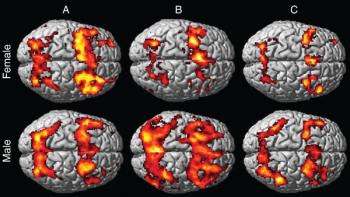
Magnetic resonance imaging shows lower digit span scores among women with MTBI.
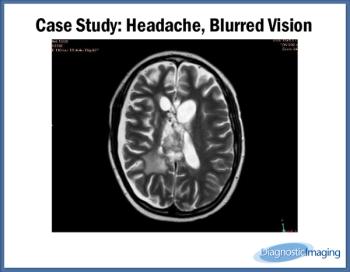
Case History: 20-year-old female with severe headache, blurred vision, vomiting.
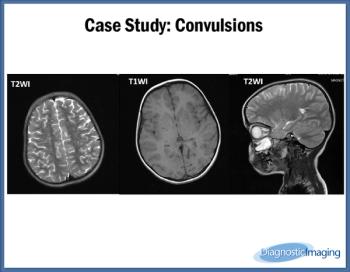
Case History: 7-year-old female with complaints of convulsions for one year.

A new, free, website provides comprehensive answers to complex questions about MRI.
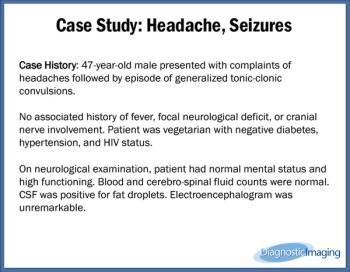
Case History: 47-year-old male with headaches followed by generalized tonic-clonic convulsions.
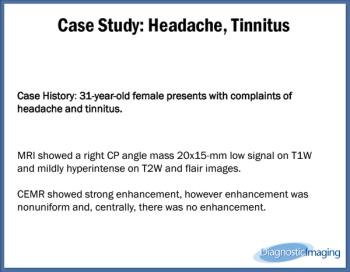
Case History: 31-year-old female presents with complaints of headache and tinnitus.

Neuroimaging with MRI shows an association between brain structure and postconcussive symptoms.

Choosing Wisely guidelines can miss important findings, neurosurgeons argue.

Advanced imaging may not be necessary for many people with headaches, but clinicians are ordering them for their patients.

Magnetic resonance imaging has shown changes in the brain among smokers who relapsed within seven days of quitting.

Brain changes were detected by MRI in high school football players after only one year of play.

Using MRI to detect plaque build-up in coronary arteries may help identify patients developing mild cognitive impairment.

44-year-old male with a history of absence seizures, migraines, peripheral neuropathy, and multisystem sarcoidosis.

Magnetic resonance images showed changes in the brain, including bilateral white matter atrophy, among patients with CFS.
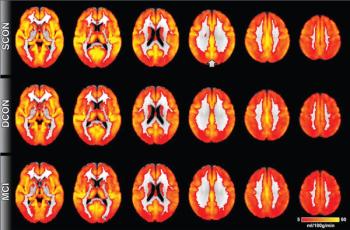
Arterial spin labeling has shown changes in the posterior cingulate cortex among patients who went on to experience cognitive decline.

Imaging can detect changes in white matter among children with reading difficulties.

Magnetic resonance imaging on patients with multiple sclerosis who use a Will balance board showed changes of the brain that affected balance and movement.
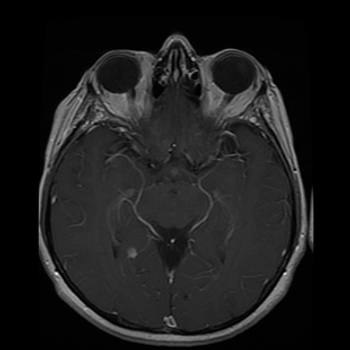
Diffusion tensor imaging detected disruptions in white matter integrity that could be linked to higher impulsivity in chronic users.

Emerging technology gives radiologists an unprecedented view of the brain.

Magnetic resonance imaging can be used to track brain growth of premature babies.
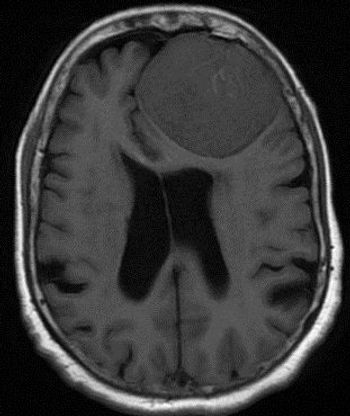
35-year-old female with prior history of breast carcinoma presented with frontal headaches.
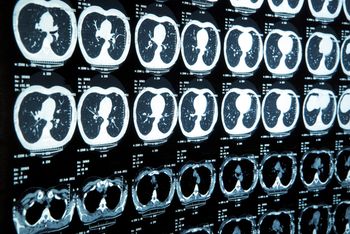
Magnetic resonance imaging of brains of adolescents before and after the Boston marathon attack provides insight on risk factors for PTSD, study finds.

Use of MRI to visualize white matter may help clinicians predict progression of MS.

Magnetic resonance imaging may be a promising way to detect lower levels of iron in the brain, helping determine which children have ADHD.